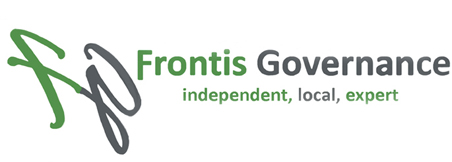On April 22nd, the Intesa Sanpaolo’s AGM will elect the members of the Supervisory Board through the slates of nominees’ mechanism (“voto di lista”). As per the voto di lista, mandatory for all Italian listed companies since 2007, shareholders will vote on slates of nominees submitted by other shareholders, holding at least a threshold of the company’s share capital (defined by the Market Authority for each company). Three slates have been submitted for the renewal of Intesa’s Board: the first one by the banking foundations Compagnia di San Paolo and Fondazione Cariplo (major shareholders, jointly holding 14.7% of the share capital), the second one by three “minor” banking foundations jointly holding 9.9% and the third one by a group of fund managers coordinated by the Italian Asset Managers Association (Assogestioni) with 0.59%. For the first time, the definition of the Assogestioni’s slate raised a strong debate, even about the actual independence of the fund managers. Mr. Guido Giubergia (CEO of Ersel SIM) was one of the main dissenters, so that he resigned from the chairmanship of Assogestioni’s Corporate Governance Committee. The internal crisis seemed to be overcome, and on March 28th the funds submitted the slate to Intesa Sanpaolo. Nonetheless, the debate on Assogestioni’s nominees raised the attention on the “voto di lista” mechanism, that so far enjoyed widespread appreciation. The seriousness of the debate seems to be strengthened by the intervention of the Italian Market Authority (Consob), that called Mr. Giubergia for further clarification, as newspapers reported (Vittoria Puledda, Al via le liste per Intesa e Generali bufera sui nomi di Assogestioni, la Repubblica, March 29th, 2013).
Frontis Governance already questioned about the effectiveness of the “voto di lista” mechanism (Election of the Board: is the Italian “voto di lista”, as defined by the By-laws, still valid?, posted on April 24th, 2012). The comment posted almost one year ago highlighted how such mechanism may strengthen the major shareholders’ control of the Boards. Just few examples: Fiat and UniCredit’s major shareholders are able to elect more than 90% of Board members even controlling less than 70% of votes, while Telecom Italia’s major shareholder (Telco) is able to appoint 80% of Directors with less than 50% of Meeting votes.
Concerns were raised also over the definition of the slates: too often the slates submitted by the major shareholders are complementary to those of the fund managers, represented by Assogestioni, so that all nominees of both slates are appointed, regardless the shareholders’ voting direction. The number of Board members to be elected from the “minority” slate is set by the company’s Bylaws, that may provide for just one “minority” member (that’s the case, for instance, of Fiat and UniCredit). Furthermore, as per the Italian law and per the Corporate Governance Code, specific independence criteria and gender quotas have to be met. Concerns may arise when the slate submitted by the major shareholder includes a lower number of nominees respect to the number of Board members, being sure that the Assogestioni’s associated funds will nominate the ones having the missing independence and gender requisites. Again in Fiat’s 2012 Board election: shareholders had to appoint 9 Directors, of which 2 women; Exor (major shareholder) submitted a slate of 8 nominees, including one woman, and the fund managers coordinated by Assogestioni submitted a “slate” of only 1 nominee and…woman. It was clearly a pure coincidence, but such cases are very frequent on FTSE MIB’s companies, so that concerns may arise over previous discussions (and, why not, agreements) between the association and the major shareholder about the identity of the nominees.
The debate over the Assogestioni’s slate submitted to Intesa Sanpaolo was also related to another delicate issue: the real independence of the fund managers. The slate was signed also by Fideuram and Eurizon, two asset management companies part of Intesa Sanpaolo Group. Both Fideuram and Eurizon representatives correctly did not actively participate to the definition of the slate. Nevertheless, the submission of the slate itself would have been impossible without the support of those shareholders in clear conflict of interests. The independence of asset managers is a real issue for Assogestioni, as more than 75% of its associates are held by large banking groups and less than 10% of total assets are managed by independent institutions.
It seems that the debate involved also foreign institutional investors, none of which signed the Assogestioni’s slate, including the ones that supported the Italian “minorities” over the last couple of years (Fidelity, JP Morgan, Hermes, Amber, Aviva, the Dutch pension fund APG, etc.). Did the debate ring an alarm bell on the actual Assogestioni’s independence also through the big international investors? In that case, the association would face another problem, caused by the general non voting practice of almost all the Italian fund managers. In fact, most of Assogestioni’s institutional members prefer not to vote on many items on the Agenda, with the exception of the Board elections where a slate of nominees is submitted. So far, the Italian fund managers were able to elect almost all their candidates thanks to the quite unconditional support of foreign institutional investors (by fact delegating to them the decision on the other items on Agenda), that represent approximately 85% of minorities voting at Italian AGMs.
Thanks to the current definition of the slates, as no real competition occurs, all submitted nominees are elected in any case, so that Assogestioni does not really need the support of external shareholders for the final election. Nonetheless, if the election of the Assogestioni’s slates should fail, new scenarios may be possible: foreign institutional investors may seriously take the responsibility to submit their own independent nominees (as already happened in the near past, see Parmalat and Sorin in 2012), or maybe one day new categories of Italian shareholders, more independent, may finally decide to take part of the voting process and to the appointment of Board members.
